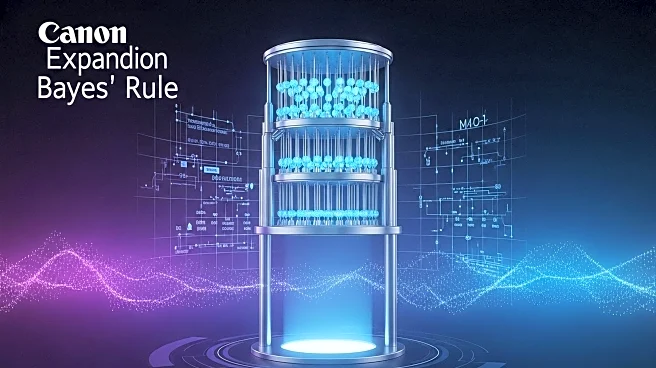What's Happening?
An international team of scientists has successfully applied Bayes' rule, a 250-year-old mathematical approach to calculating probabilities, to the quantum realm. This breakthrough, published in Physical Review Letters, demonstrates how Bayes' rule can be adapted to quantum physics, offering new insights into quantum state probabilities and decision-making processes. The research was led by Professor Valerio Scarani and his colleagues, who derived a quantum version of Bayes' rule based on the principle of minimum change.
Why It's Important?
The adaptation of Bayes' rule to quantum physics represents a significant advancement in mathematical physics, potentially enhancing quantum computing and machine learning applications. By providing a systematic way to update beliefs in the quantum realm, this development could improve error correction and decision-making processes in quantum technologies. It highlights the ongoing integration of classical mathematical principles into modern scientific fields.
What's Next?
Researchers plan to explore further applications of the quantum Bayes' rule in quantum computing and other areas. This may lead to new methodologies for handling uncertainty and improving the accuracy of quantum systems.
Beyond the Headlines
The breakthrough prompts consideration of the philosophical implications of probability as a measure of belief rather than objective fact. It also raises questions about the nature of reality and the role of human perception in scientific inquiry.










